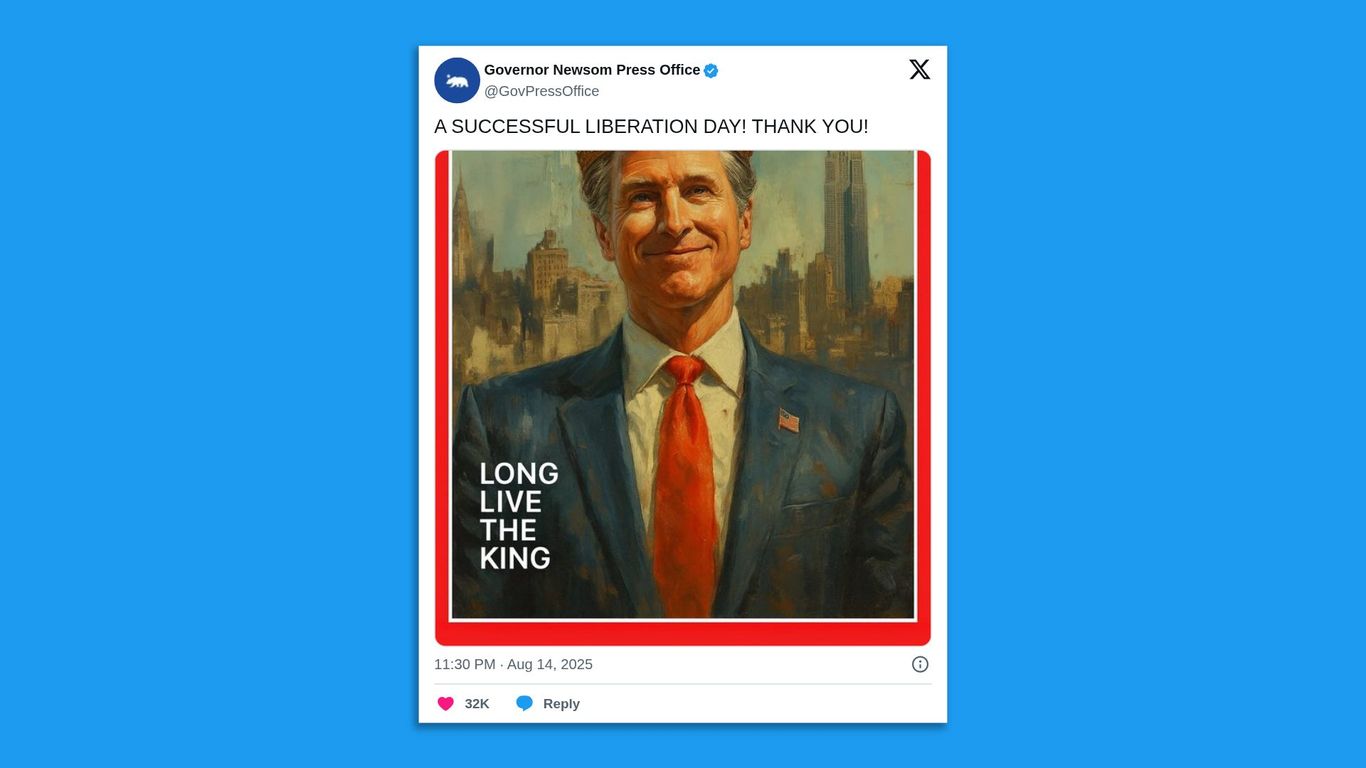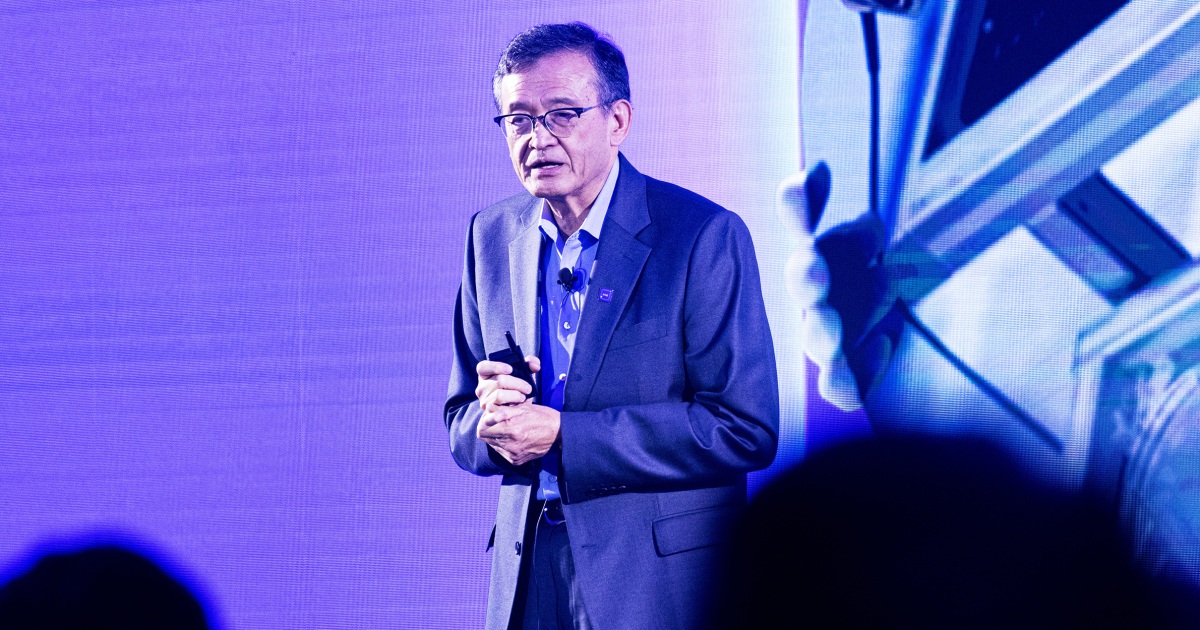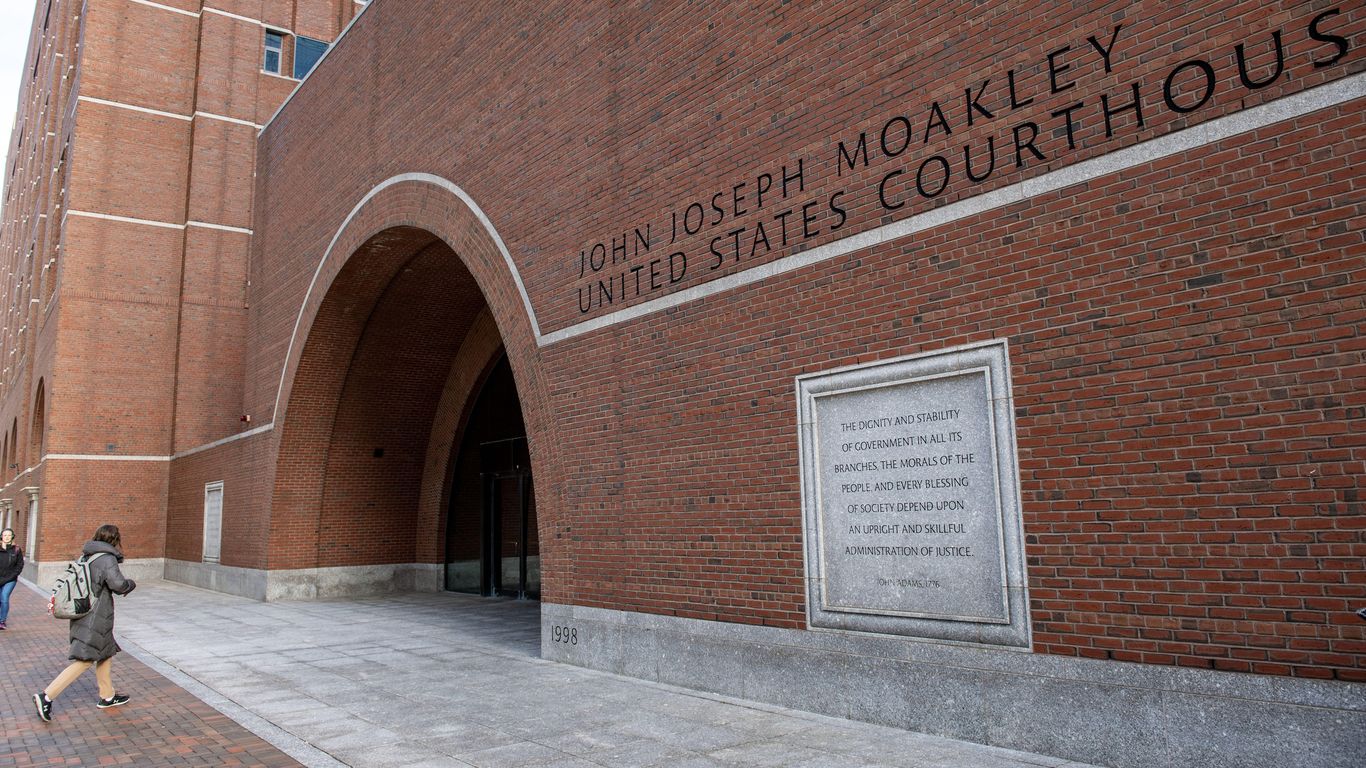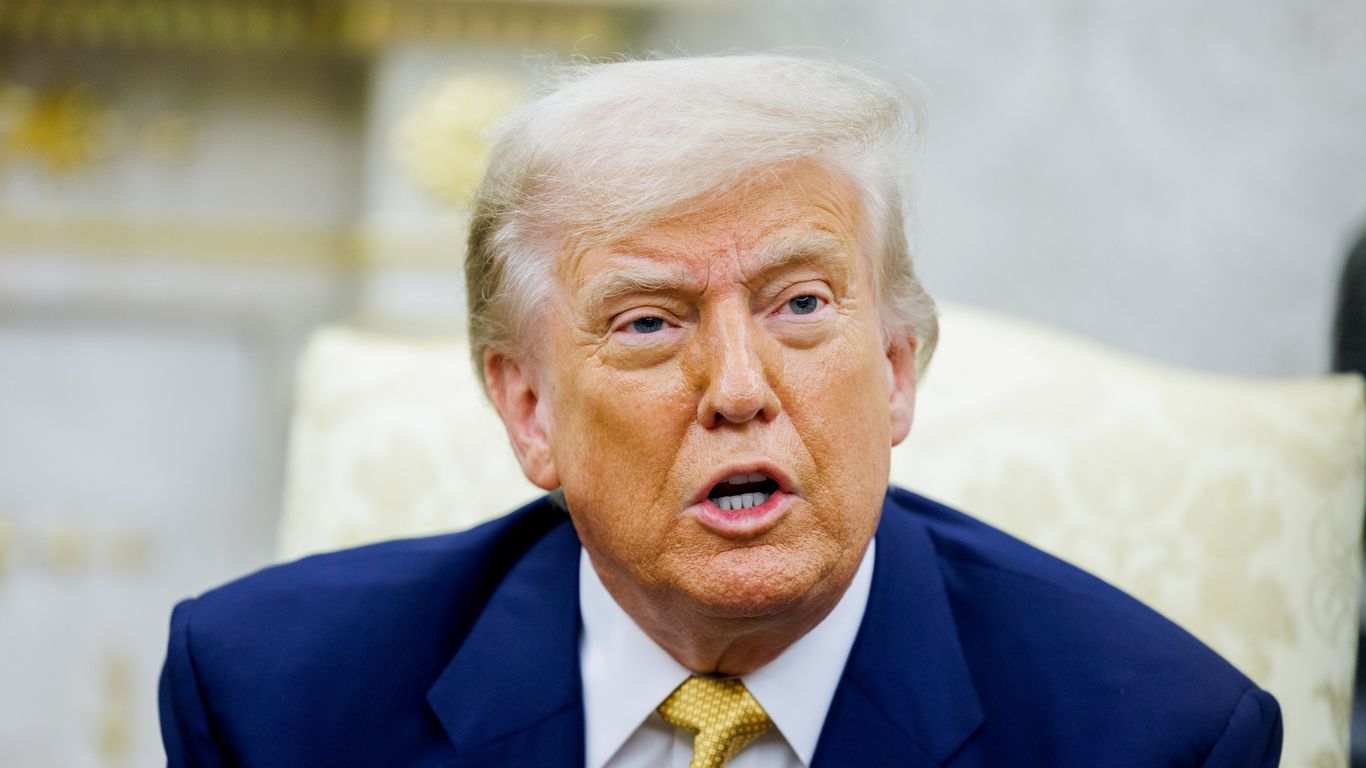Trump Administration Continues Push Against Big Tech

Introduction
The Trump administration has recently faced a major setback in its antitrust cases against Big Tech companies, with a federal judge dismissing the government's complaint against Google. However, this has not deterred officials from doubling down on their efforts to rein in the power of these tech giants. Despite recent efforts by the CEOs of Google, Facebook, and Twitter to court the president, the administration continues to push for tough enforcement in the antitrust cases.
Key Details
The recent dismissal of the Google case has not diminished the administration's determination to hold these companies accountable for their alleged monopolistic practices. In a recent speech, Attorney General William Barr emphasized the importance of addressing the "monopoly power of the big tech companies" and urged the Department of Justice to continue pursuing antitrust actions. This decision also comes amidst growing concerns about the influence and control these tech companies have over the dissemination of information and the potential impact on the upcoming election.
Impact
The Trump administration's continued pursuit of antitrust cases against Big Tech companies has significant implications for the tech industry and the political landscape. This tough stance could potentially lead to more aggressive enforcement actions and increased scrutiny of mergers and acquisitions in the future. It also highlights the growing bipartisan concerns about the dominance of these companies and their impact on competition and consumer welfare. While the dismissal of the Google case may have been a setback, it is
About the People Mentioned
Donald Trump
Donald John Trump, born June 14, 1946, in Queens, New York, is an American businessman, media personality, and politician. He graduated from the University of Pennsylvania’s Wharton School in 1968 with a degree in economics. In 1971, he took over his family’s real estate business, renaming it the Trump Organization, through which he expanded into building and managing skyscrapers, hotels, casinos, and golf courses. Trump gained widespread fame as the host of the reality TV show *The Apprentice* from 2004 to 2015, which helped establish his public persona as a successful entrepreneur. Trump entered politics as a Republican and was elected the 45th president of the United States, serving from 2017 to 2021. His presidency was marked by significant policy actions including tax cuts, deregulation, the appointment of three Supreme Court justices, renegotiation of trade agreements (notably replacing NAFTA with the USMCA), and a focus on immigration control including border wall expansion. He withdrew the U.S. from international agreements such as the Paris Climate Accord and the Iran nuclear deal, and engaged in a trade war with China. His administration’s response to the COVID-19 pandemic was criticized for downplaying the virus’s severity. Trump was impeached twice by the House of Representatives—first in 2019 for abuse of power and obstruction, and again in 2021 for incitement of insurrection—but was acquitted by the Senate both times. After losing the 2020 election to Joe Biden, Trump challenged the results, culminating in the January 6, 2021, Capitol riot. He remains a central figure in American politics, having won the 2024 presidential election and returned as the 47th president in 2025, continuing to promote policies aimed at economic growth, border security, and military strength[1][2][3][4].
William Barr
William Pelham Barr, born May 23, 1950, in New York City, is an American lawyer and government official who served twice as U.S. Attorney General—the 77th from 1991 to 1993 under President George H.W. Bush and the 85th from 2019 to 2020 under President Donald Trump—making him the second person in U.S. history to hold the position twice.[1][2][3] Barr earned an A.B. in government from Columbia University in 1971 and an M.A. in government and J.D. from the same institution. Early in his career, he worked on the Domestic Policy Council during President Ronald Reagan's first term (1982–1983) and became a law firm partner by 1985. Joining the Justice Department in 1989, he served as Assistant Attorney General for the Office of Legal Counsel (1989–1990), Deputy Attorney General (1990–1991), and then Attorney General.[1][2][6] As Attorney General in the early 1990s, Barr advanced law enforcement priorities, including responses to the Savings & Loan crisis, the Pan Am Flight 103 bombing investigation, the Talladega prison hostage crisis resolution, and counter-terrorism during the First Gulf War. He established policies on financial institutions, civil rights, and antitrust, and authored "The Case for More Incarceration" advocating tougher criminal justice measures.[1][4][5] After government service, Barr was Executive Vice President and General Counsel at GTE (1994–2000) and Verizon (2000–2008), then advised corporations on enforcement and litigation, including as Of Counsel at Kirkland & Ellis (2009 and 2017).[1][3] Nominated by Trump in December 2018 and confirmed in February 2019, Barr's second term involved overseeing Special Counsel Robert Mueller's Russia investigation report, intervening in cases like those of Michael Flynn and Roger Stone, and addressing national security issues such as Chinese espionage via CFIUS and Team Telecom.[2][3][4][5] He resigned in December 2020. Since then, Barr has maintained a low public profile, with no major recent events noted as of early 2026.[1][4] (Word count: 298)
About the Organizations Mentioned
Google, a subsidiary of Alphabet Inc., is a global technology leader primarily known for its internet-related products and services, including its dominant search engine, advertising platforms, cloud computing, software, and hardware offerings. Founded in 1998 by Larry Page and Sergey Brin, Google has evolved from a simple search engine into a diversified tech giant with significant influence across multiple sectors[2][8]. The company’s core business revolves around Google Services, which includes Search, YouTube, Android, Chrome, Google Maps, Google Play, and advertising. Its advertising business remains the largest revenue driver, underpinning ambitious investments in emerging technologies such as artificial intelligence (AI) and cloud computing. Google Cloud, a major growth segment, offers infrastructure, platform services, and enterprise tools like Google Workspace, providing AI-powered solutions for data analytics, cybersecurity, and collaboration[2]. Google has consistently pioneered innovations in AI, demonstrated recently at Google I/O 2025, where it showcased advances in AI-powered search and personalization, emphasizing local discovery and smarter user experiences. AI integration also reshapes local business visibility through enhancements in the Google Business Profile, enabling businesses to better engage customers with AI-driven communication and search optimization[3][5][6]. Financially, Alphabet crossed a landmark $3 trillion market capitalization in September 2025, joining a select group of tech giants due to robust revenue growth driven by AI, resilient advertising, and expanding cloud services. This milestone reflects Google’s strategic balance between its dominant ads engine and scaling innovative bets[1]. Culturally, Google in 2025 maintains its commitment to innovation, openness, and user focus while adapting to business realities. It remains a top employer, known for fostering employee empowerment and evolving workplace policies to attract and retain talent, marking its maturity as a global tech leader with over 150,000 employees[4]. In summary, Google represents a transformative force in technology and business, blending AI-driven innovation, dominant market presence, and cultural adaptability to shap
Facebook, now operating under the parent company Meta Platforms, Inc., is a pioneering American social media and technology organization that has fundamentally reshaped global communication and digital marketing. Founded in 2004 by Mark Zuckerberg and four Harvard University classmates, Facebook began as a campus networking site before rapidly expanding to become the world’s largest social network. Its mission—to connect people and foster human interaction—has driven its evolution from a simple online directory into a multifaceted digital ecosystem. Facebook’s core platform enables users to create profiles, share content, join groups, and interact with friends and communities worldwide. Over the years, it has introduced groundbreaking features such as News Feed, Messenger, Marketplace, and Reels, continually adapting to user behavior and technological trends. The organization has also expanded its reach through acquisitions, including Instagram and WhatsApp, making Meta one of the most influential tech conglomerates globally. Facebook’s achievements are monumental: it was the first social network to surpass one billion users and now boasts over 3.07 billion monthly active users as of 2025. It ranks as the third-most-visited website worldwide and remains the second-largest digital ad platform, generating over $116 billion in ad revenue annually. Its robust advertising tools and e-commerce integrations, such as Facebook Shops and Marketplace, have made it indispensable for businesses seeking global reach and measurable ROI. Despite facing criticism over privacy, misinformation, and content moderation, Facebook continues to innovate, introducing AI-powered features, new monetization options for creators, and advanced ad targeting. Its enduring popularity, especially among millennials and Gen Z, and its ongoing expansion into virtual reality and the metaverse, underscore its pivotal role in shaping the future of digital connection and commerce.
Twitter, now rebranded as X, is a global communications company based in San Francisco that operates a social media and microblogging platform where users post short messages called tweets, limited to 280 characters[1][3]. Founded in 2006, Twitter quickly became a vital platform for real-time public conversation, news dissemination, and social commentary, serving a broad user base including businesses, journalists, politicians, and celebrities[2][3]. Elon Musk acquired Twitter in October 2022 for $44 billion, privatizing the company and merging it into X Corp., marking a strategic rebranding aimed at transforming Twitter into an AI-powered “super app” that integrates social media, content, AI tools, and financial transactions in one platform[1][3]. This transition ended Twitter’s existence as a standalone company and led to substantial operational changes, including reduced content moderation, workforce reductions, and new monetization models like subscription services and creator monetization[1][3]. As of 2025, X (Twitter) has around 561 million monthly active users globally, with approximately 132 million daily active users, though user engagement has declined since Musk’s takeover[4][5][6]. The platform remains influential, particularly for real-time updates, professional networking, and viral content sharing, distinguishing itself from competitors like Facebook, Instagram, and TikTok through its focus on public discourse and newsworthiness[2]. However, the shift in content policies and the introduction of paid verification have driven advertisers away, causing a significant drop in advertising revenue despite overall growth in subscription income[1][6]. Twitter’s core value lies in its open conversation model, which fosters debate and information exchange at scale. Its evolution into X represents an ambitious vision to become a multifunctional digital hub, balancing its legacy as a microblogging pioneer with cutting-edge AI-driven innovations under Musk’s leadership[1][3].
Department of Justice
The **United States Department of Justice (DOJ)** is a federal executive department responsible for enforcing federal laws, ensuring public safety, defending the interests of the United States, and upholding civil rights. Established in 1870 to consolidate federal legal affairs under the Attorney General, the DOJ has grown into a vast organization with over 115,000 employees and a budget exceeding $22 billion[1][4][5]. It operates through more than 40 component organizations, including prominent law enforcement agencies such as the Federal Bureau of Investigation (FBI), Drug Enforcement Administration (DEA), Bureau of Alcohol, Tobacco, Firearms and Explosives (ATF), and the U.S. Marshals Service[1][4][5]. The DOJ’s core mission is to uphold the rule of law, keep the nation safe, protect civil rights, and ensure a fair and impartial administration of justice across federal, state, local, tribal, and international levels[2][5]. It investigates and prosecutes federal crimes, including terrorism, drug trafficking, organized crime, financial fraud, and cybercrime. The FBI, as the DOJ’s principal investigative arm, leads in areas such as counterterrorism, counterintelligence, and cybercrime[6]. Additionally, the DOJ manages federal prisons and provides leadership and resources to state and local law enforcement agencies. Historically, the DOJ’s origins trace back to the Judiciary Act of 1789, which created the Attorney General's office. Its establishment as a separate department in 1870 allowed for greater coordination of federal law enforcement and legal representation of the government[2][4]. Over time, the DOJ has played a critical role in landmark civil rights enforcement, combating organized crime, and adapting to modern challenges such as cyber threats and international criminal cooperation[1][5]. Today, headquartered in Washington, D.C., with field offices nationwide and abroad, the DOJ continues to influence national security and justice policy, balancing traditional law enforcement with evolving technological and societal demands.

















